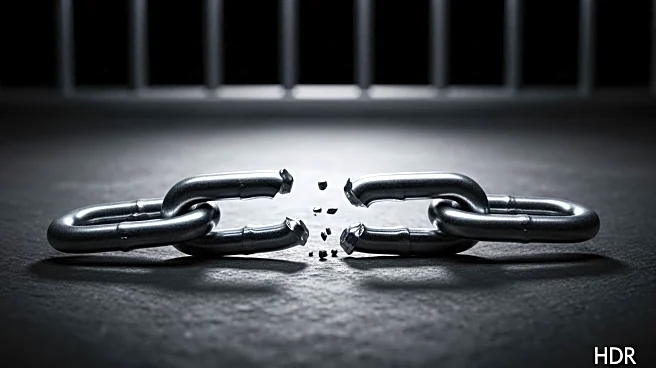What's Happening?
Andrew Cuomo, an independent candidate for New York City mayor, announced his intention to scrap the plan to close Rikers Island if elected. This marks a significant reversal from his previous stance as governor, where he supported closing the complex. Cuomo now advocates for rebuilding state-of-the-art jails on Rikers Island and using the proposed sites for borough-based jails to develop affordable housing. Critics, including City Council Speaker Adrienne Adams, argue that this move is a political maneuver to revive his mayoral campaign, which trails behind Democratic front-runner Zohran Mamdani. The Independent Rikers Commission and other stakeholders continue to support the closure of Rikers, citing fiscal and legal concerns.
Why It's Important?
Cuomo's proposal to keep Rikers Island open has sparked debate over the future of New York City's correctional facilities and urban development. The plan to close Rikers and replace it with borough-based jails was intended to address issues of overcrowding and inhumane conditions. Cuomo's reversal could impact ongoing efforts to reform the city's criminal justice system and affect the allocation of resources for housing and community development. The decision also highlights the political dynamics of the mayoral race, as candidates navigate complex issues to gain voter support. The outcome of this debate could have lasting implications for public safety and urban planning in New York City.
What's Next?
Cuomo's proposal is likely to face scrutiny from various stakeholders, including city officials, advocacy groups, and the public. The debate over Rikers Island's future will continue to be a focal point in the mayoral race, influencing voter perceptions and campaign strategies. Mamdani and other candidates may leverage this issue to differentiate their platforms and appeal to constituents concerned about criminal justice reform. The city will need to assess the feasibility and implications of Cuomo's plan, considering legal, fiscal, and social factors. The mayoral election outcome will play a crucial role in determining the direction of New York City's correctional policies and urban development initiatives.









